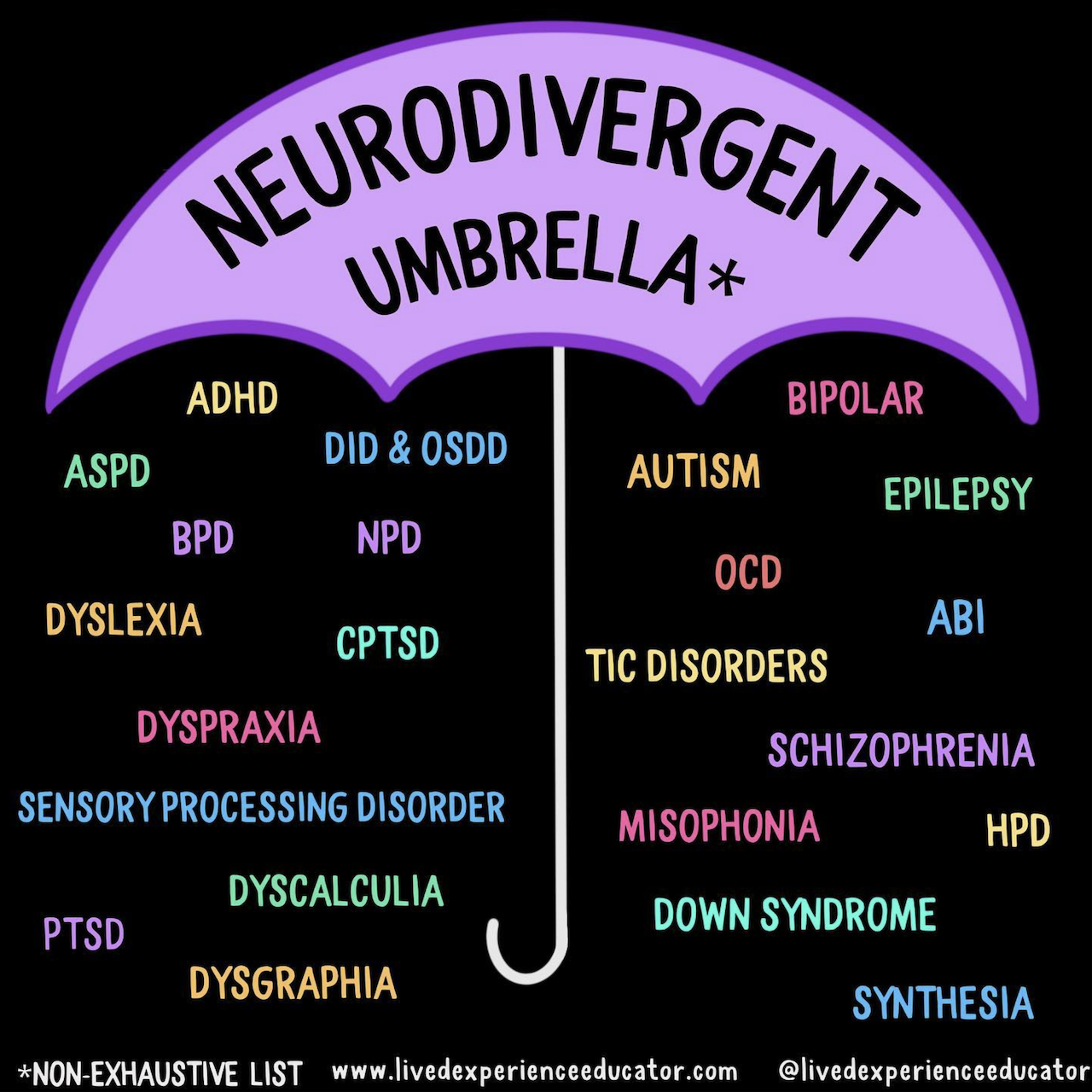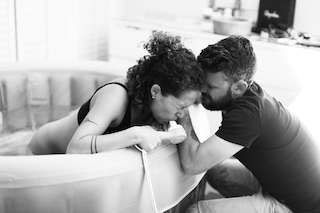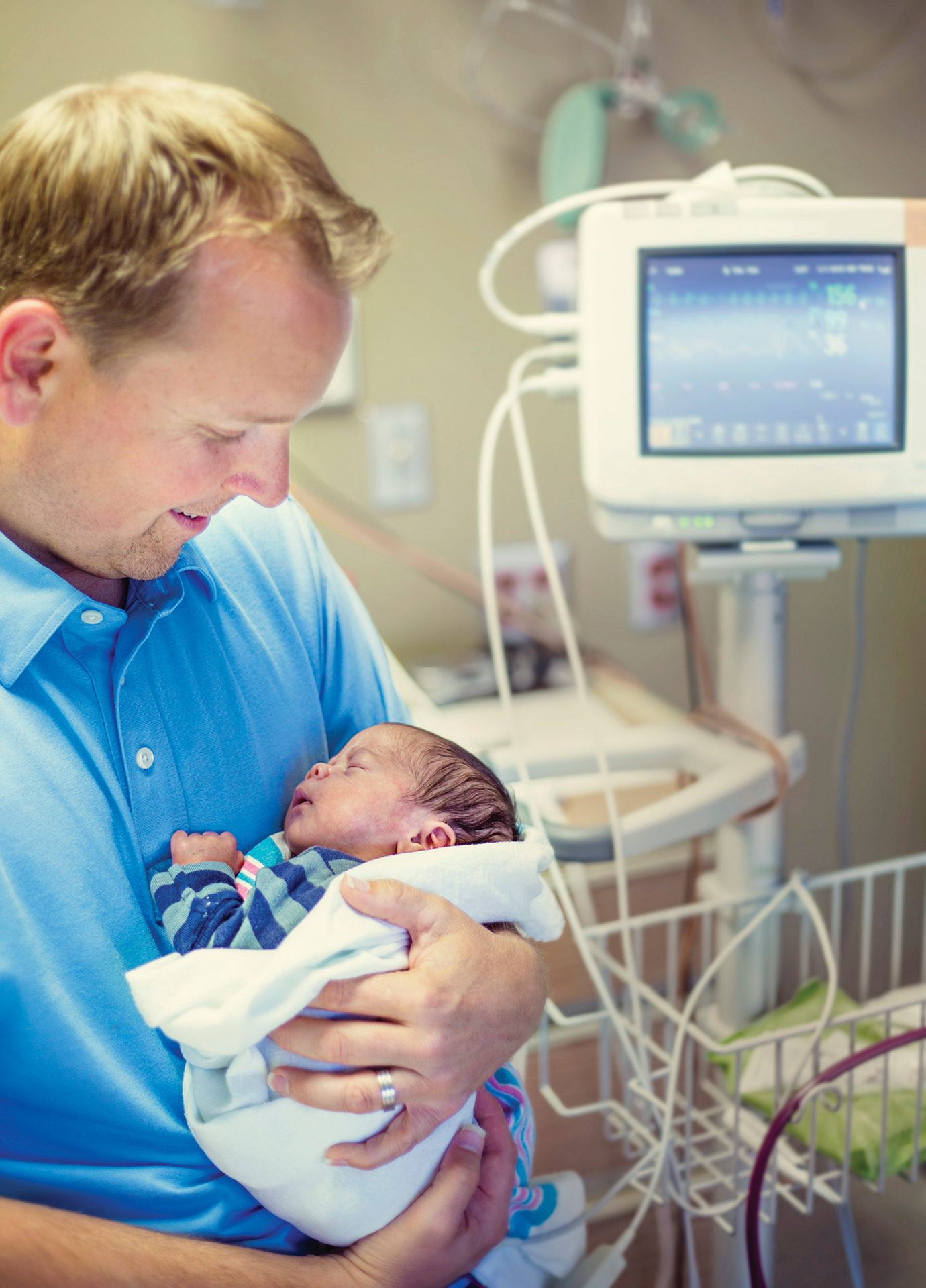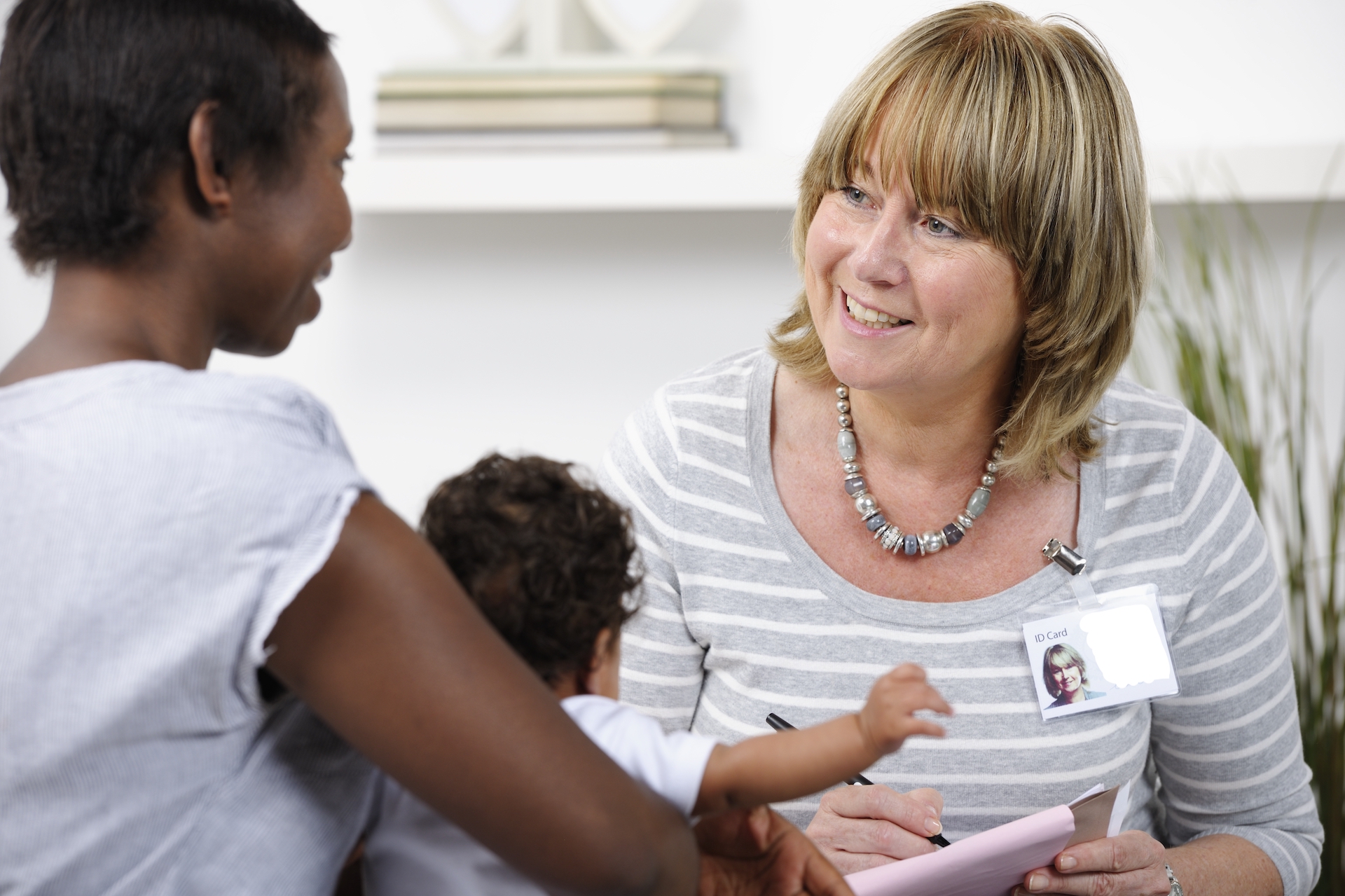
Ask DadPad, Being a Dad, Parenting Advice
Ask DadPad: How do I cope as an autistic parent-to-be and new parent?
Posted on 15th April 2022
April is Autism Acceptance Month (previously Autism Awareness Month), and we’ve also had Autism Acceptance Week and World Autism Acceptance Day in the last few weeks.
This blog is one of a series of two being written for us by team member Georgie, who first started to explore neurodiversity five years ago in order to be better able to support her autistic son, but who has since discovered that she, her partner and their daughter are neurodivergent, too. In this first blog, Georgie shares her an overview of how to support either yourself or your autistic partner as you or they become a new parent.
What is autism?
Later in the year, we’ll publish a second blog in the series, with a detailed overview of what autism is and how to best support your autistic child or partner. This will contain much more detail than we’re going to set out here, as that’s not the purpose of this article, but – for now – here’s Georgie’s understanding and perspective of what autism is…
Autism is a neurodevelopmental condition – not an illness, a disease, or disorder – which is part of a person’s identity and which falls within the spectrum of ‘neurodiversity’. The term ‘neurodiversity’ is used to describe a range of differences in brain function and behavioural traits, which affects how some people experience and navigate the world. Other conditions, such as Attention Deficit Hyperactivity Disorder (ADHD), Dyslexia, Dyspraxia, Dyscalculia, Sensory Processing Disorder (SPD), Tic Disorder, Epilepsy, and some mental health conditions also fall under the neurodivergent umbrella:

Graphic from @livedexperienceeducator on Instagram: https://www.instagram.com/p/CYBl-miPcCL/
Approximately 700,000 adults and children (1 in 100) are diagnosed as being on the autism spectrum in the UK today. However, the actual number is likely to be much higher as there are many people who aren’t even aware that they are autistic, or who are waiting for or are unable to access autism assessments, or who know they are autistic but don’t feel the need to go through the assessment process.
Autism is thought to be three times more prevalent in boys and men than in girls and women. However, those statistics are currently being challenged due to a lack of autism research including female participants and due to historical missed or misdiagnosis of autism in women and girls.
In recent years there has been a huge rise in child and adult referrals for autism assessment due to: advances in research and understanding of the condition; an individual’s unique behavioural traits coming into awareness as a result of the pandemic; and due to #ActuallyAutistic people increasingly utilising social media to break down the stigma, myths and misconceptions regarding autism.
To find out a bit more about the condition, the common signs of autism in both children and adults, and where to go for support and/or a diagnosis, the NHS Autism webpage is a great starting point.

Autism, Pregnancy and Birth
Pregnancy can be an especially overwhelming time for autistic mums-to-be as they navigate:
- medical appointments;
- busy waiting rooms;
- medical tests and procedures;
- interactions with medical professionals;
- hospital noises and lighting;
- listening to and remembering important information;
- making decisions about their and their baby’s care;
- body and hormone changes; and
- preparing for a new arrival
For autistic men and co-parents, being involved in the care of their partner and baby can also be overwhelming, because of how accompanying their partner through all the experiences listed above can affect them, too.
As an autistic person, either giving birth yourself or witnessing someone else give birth can be an especially intense experience. The physical act of giving birth involves a lot of intense bodily sensations and different noises, alongside potentially transitioning through a range of healthcare professionals and/or birth environments.
For the mum-to-be or birthing person, her birth preferences/plan and hospital bag need to include personalised regulation skills and tools, so that their birth partner, midwife and/or doctor can support them to stay as in control and calm as they can be during labour.
For the supporting dad/birth partner, they need to feel confident in their role, understand what is happening around them and to their partner, and to be able to take regular breaks in order to look after their own regulation needs.
All neurodivergent parents-to-be would benefit from:
- receiving care from staff with either lived-experience of neurodivergence or appropriate professional training in caring for neurodivergent people;
- having continuity of carer from a named midwife who can spend time getting to know both parents and accompanying them to hospital appointments;
- being offered extra or longer antenatal appointments at quieter times of the day, in a location that feels safe and familiar (such as their own home, or at a regular clinic) or virtually;
- having a single point of contact for someone who can oversee and co-ordinate their perinatal care, especially if they have a high-risk pregnancy or need involvement from multiple perinatal professionals/services;
- regular mental wellbeing checks, involving perinatal mental health and neuro-disability specialists when necessary, in order to talk about any changes that they made be experiencing;
- being able to use sensory and regulation tools whenever and wherever they need (even in procedures, appointments and the birth room);
- having a face-to-face, virtual or photographic tour of all the different birthplace options with their partner, to see which one(s) would best suit their needs – and to figure out any adjustments that might be needed;
- being offered one-to-one or small group infant feeding and/or birth preparation classes;
- being guided, with their partner, through pain relief options, interventions and events that can happen during labour and exploring together what the mum-to-be might choose or need, if any of the situations should actually happen;
- having extra time and space to make decisions or choices about any care being offered;
- being given hard-copy leaflets and relevant signposting information at appointments, and receiving a written summary of all discussed points as a follow-up to all appointments;
- having a written ‘A, B and C’ plan of birth preferences (i.e. intended birth in chosen location; birth with additional interventions or in a different location; and birth in a surgical environment or emergency situation) which is documented in their medical notes and is read by all staff before getting involved in the family’s labour care;
- an additional section written in the birth preferences for the neurodivergent parent(s) to share any needs or adjustments that staff would benefit from being aware of;
- a hospital passport;
- a bed in a quiet ward or private room, for any observations or in-patient care;
- an additional birth partner, to support both parents in the birth room and to offer respite to a neurodivergent dad or partner;
- being able to have their partner or another trusted person stay with them, if they need to stay in hospital for any period of time; and
- being offered postnatal support at home.

Autism and becoming a parent
Although there are plenty of autistic adults that were diagnosed in childhood who go on to become parents, there are still many people who only discover that they are autistic as a result of identifying and supporting their own neurodivergent children or when the expectations and responsibilities of adulthood become too overwhelming – and one such possible event is becoming a parent!
The transition to parenthood is an intense period in anyone’s life and, to begin with, babies don’t have any sense of routine – let alone being able to know night from day! For autistic parents with a new little person in their lives, it can feel equally chaotic either to have an interruption to any routine they have tried to create, or to attempt to ‘go with the flow’ of the baby.
This disruption can be really destablising, and can potentially also lead the neurodivergent parent(s) to have intense feelings about being rejected or getting things wrong, which can make trying something for the first time, or asking for help, much harder.
Recovering from the birth, learning how to care for a baby, coping with yet more body and hormone changes, attending postnatal appointments, having more visitors than usual, managing relationship changes, interrupted sleep, baby noises and close contact is all a lot to be dealing with at the same time. When everything is new and there’s lots to juggle, ‘meltdowns’ or ‘shutdowns’ are to expected, and so it’s important to have someone available to take over baby care when you need time alone. Don’t be afraid to ask for help when you need it – everyone needs an extra helping hand or two in the early days.
As you, your partner and your baby begin to settle in with each other, new routines will naturally start to form and everything should begin to feel less overwhelming. You may feel ready to try new experiences, like attending parent-and-baby groups and activities, but don’t worry if you or your partner need more time before you’re ready, or if they turn out not to be right for your family. Your baby has everything it needs from you and your partner, and there are plenty of other ways to socialise with other parents and babies. It’s wise to lower your expectations and to pace yourselves – you/your partner might have been previously able to attend an appointment, pay outstanding bills and do the washing in one day, but everything will take more preparation and time with a baby in tow.
You will eventually find a way of parenting and managing life that works for you, your partner and your baby, by utilising your regulation skills/tools, making adjustments and accessing support when you need it.
You and your partner can talk to your midwife, Health Visitor or GP about any questions you have about parenting – they may be able to provide additional support, information and/or refer you on to services that can help. Additional family support is available if you need it, to assist with day-to-day life and to support you through new or challenging things.

All neurodivergent parents would benefit from:
- using regulation skills and tools whilst parenting;
- being offered practical demonstrations of baby care and having step-by-step instructions to refer to (the DadPad is therefore an excellent resource for dads-to-be and new dads with autism, too!);
- being offered regular infant feeding support for reassurance and to build confidence;
- having support to manage day-to-day responsibilities whilst adjusting to life with a baby;
- being offered home appointments, especially for postnatal checks, baby weigh-ins and developmental reviews;
- being offered extra or longer clinical appointments at quieter times of the day, if home visits aren’t possible;
- being given hard-copy leaflets and relevant signposting information at appointments, and receiving a written summary of all discussed points as a follow-up to all appointments;
- parent-and-baby groups and activities that limit numbers and have quiet/sensory spaces, or which take place outside;
- being able to connect with other neurodivergent parents;
- having the option to have someone accompany them to appointments or activities;
- utilising online services for things like shopping, banking, paying bills, ordering prescriptions, etc;
- regular mental wellbeing checks, involving family support, perinatal mental health and neurodisability specialists when necessary, in order to talk about any changes that they made be experiencing; and
- scheduling in – and sticking to them! – periods of self-care and rest within their daily routine.
References and further reading:
National Autistic Society website
NICE Autism spectrum disorder in adults: diagnosis and management article
Spectrum ‘The unexpected plus of parenting with autism’ article
National Autistic Society ‘Family relationships – a guide for partners of autistic people’ article
The Guardian ‘Mothers with autism’ article
BBC News ‘Autistic dad shares his struggles with being a parent’ article
NeuroClastic ‘What is it like for an autistic parent to raise a non-autistic child?’ article
Purple Ella ‘Tips for Autistic Parents’ and ‘Autistic Mother’ YouTube videos
Padlet ‘Understanding Autism in Perinatal Care’ webpage – this resource is specifically written to provide information and guidance on caring for autistic women and birthing people during the perinatal period and is therefore especially useful for healthcare professionals.

